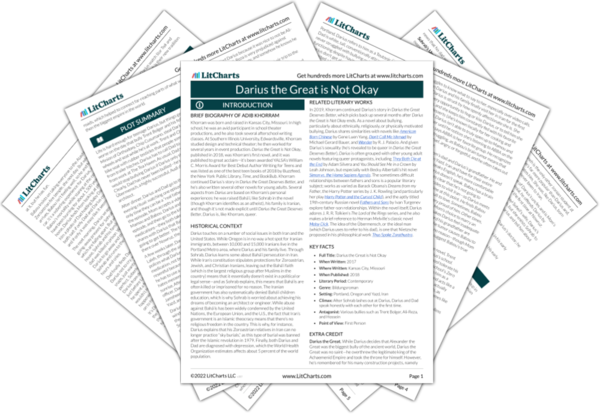AI ToolsNew
Tools to make learning and teaching easier
|
Previous
A Holodeck Vision
|
Darius the Great Is Not Okay: Soccer/Non-American Football Summary & Analysis |
Next
The Ayatollah’s Turban
|


Upgrade to unlock the analysis and theme tracking for all of Darius the Great Is Not OkayDarius the Great Is Not Okay!
Get LitCharts A+